
 |
|
|
Vegetables
Volume 64 Number 18 Date 08/29/2019 LATE BLIGHT - Potato and tomato growers are advised to continue protective fungicide treatments and monitoring plants for signs of infection. Late blight has been confirmed in Adams, Crawford, La Crosse, Monroe, Pierce, Polk, Portage, Sauk, St. Croix, Vernon, Waushara and Wood counties as of August 28, and the disease is likely to become more prevalent before harvest is complete. Rigorous sanitation including complete removal and destruction of all infected plants and debris is required if lesions are noticed. Composting will not generate sufficient heat to kill the pathogen and is not recommended. WHITEFLIES - A severe infestation of whiteflies was observed this week on tomato plants in a La Crosse County high tunnel. The flies were abundant enough that the tomato foliage and fruits had become covered in sooty mold from their honeydew secretions. Whitefly populations on this order can produce a noticeable yield reduction by impairing photosynthesis and contaminating the fruits. Eliminating all plants and weeds for at least one week prior to starting a new crop is critical step in reducing fly pressure. Whiteflies can also be managed through biological control, including the commercially available parasitic wasp Encarsia formosa. SQUASH BUG - Egg laying is still occurring in home gardens and larger plantings. Several fresh egg masses and many small nymphs were found this week on squash, pumpkins and zucchini on several western Wisconsin CSA farms, emphasizing the need for thorough fall cleanup of garden debris to reduce populations and eliminate winter hibernation sites. Crop rotation is also suggested if squash bugs have been a problem this summer. CUCURBIT DOWNY MILDEW - The state's first cucurbit downy mildew (CDM) cases of the 2019 season were confirmed in Dane and Vernon counties on August 20. Leaf samples with CDM symptoms, including angular chlorotic lesions between the leaf veins, can be submitted for testing to the UW Plant Disease Diagnostics Clinic, 1630 Linden Drive, Madison, WI 53706-1598. Information on how to properly send samples is available at https://pddc.wisc.edu/sample-collection-and-submission/. A map showing the current status of CDM in Wisconsin and the U.S. is available at the CDM ipmPIPE forecasting site: http://cdm.ipmpipe.org/. -- Krista Hamilton, DATCP Entomologist 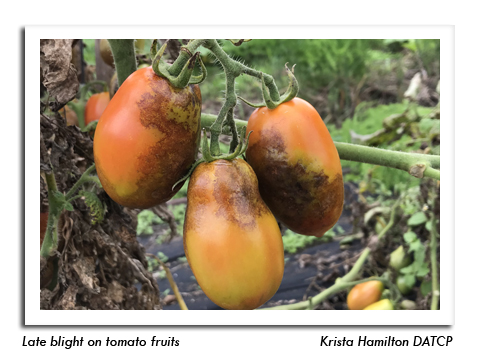
.jpg)
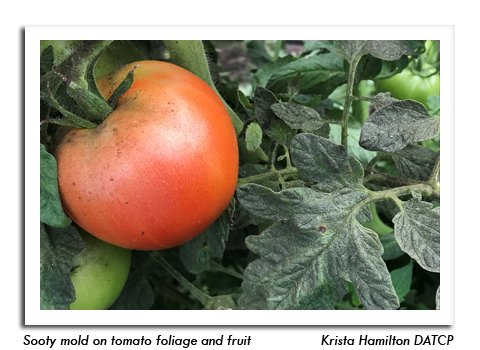
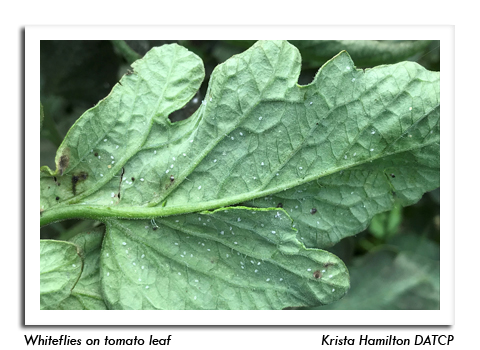
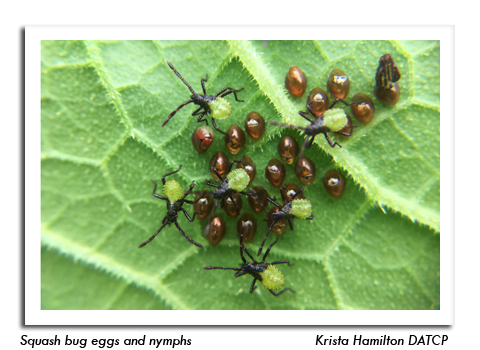
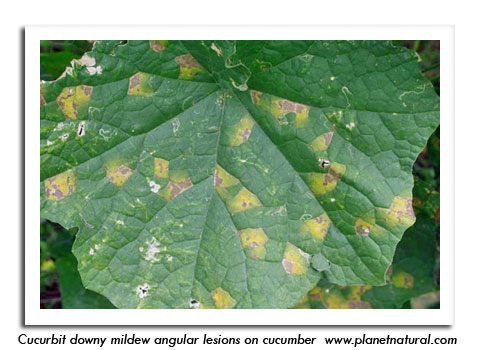
|
|
|